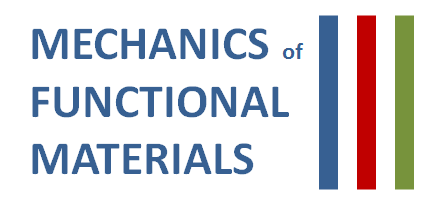We are always looking for motivated excellent candidates. Please get in contact with us.
Currently no items available.
Division Mechanics of Functional Materials
We regularly offer theses in modeling and simulation of functional materials, particularly for energy materials, Li-ion batteries, ferromagnetic and ferroelectric materials and additive manufacturing. Feel free to get in contact with us to see what we can offer.

We are always looking for motivated excellent candidates. Please get in contact with us.
Currently no items available.
We are always looking for motivated excellent candidates. Please get in contact with us.
Currently no items available.
We regularly offer theses in modeling and simulation of functional materials, particularly for
Feel free to get in contact with us to see what we can offer.
at the Division of Mechanics of Functional Materials in the institute of Material Science, TU Darmstadt
2025/09/19
Advanced Research Lab, Master Thesis
Laser powder bed fusion (LPBF) has attracted increasing interest for tailoring the magnetic properties of materials such as Nd-Fe-B and SmCo₅, as process parameters strongly affect the resulting microstructure. The phase-field (PF) method provides a thermodynamically consistent approach for simulating microstructure evolution with physically informed parameters. This is particularly important for magnetic materials, where the microstructure directly governs functional performance, making it essential to understand how different scanning parameters and strategies influence grain structure.
Supervisors: Prof. Dr. Bai-Xiang Xu , Dr. -Ing Yangyiwei Yang
